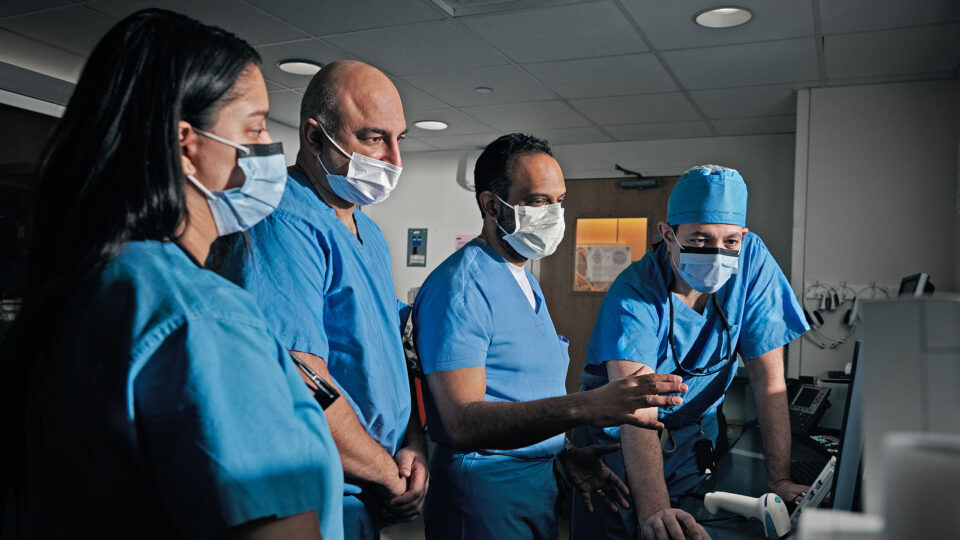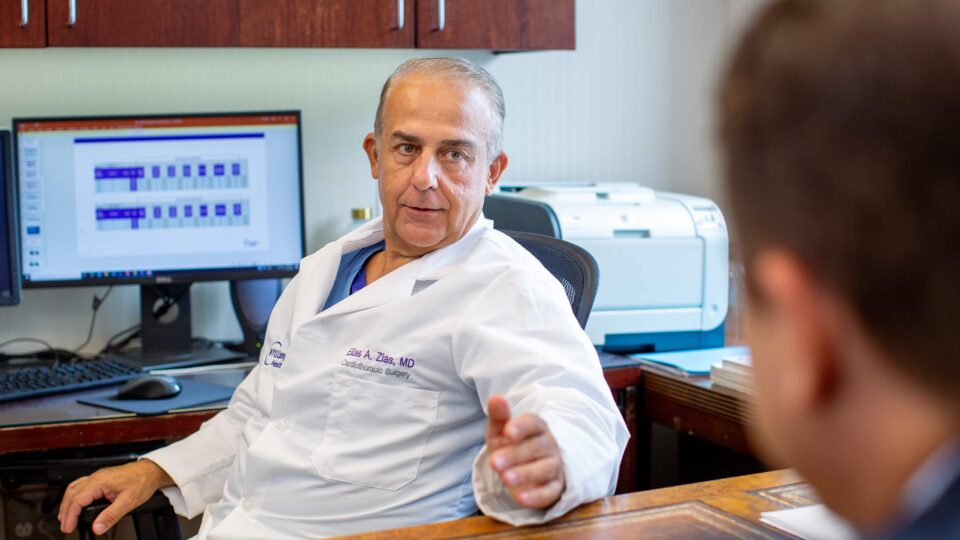“There are four million breast cancer survivors in the United States and they’re at increased risk of cardiovascular disease due to treatments and lifestyle changes that come with a cancer diagnosis,” says Kathryn J. Moore, PhD, Jean and David Blechman Professor of Cardiology.
While this increased risk is known, questions have remained about whether a major cardiovascular event actually impacts cancer pathogenesis.
In a letter published in Nature Medicine, Dr. Moore and colleagues used mouse models and human data to better understand the effects of myocardial infarction on breast cancer recurrence.
The study is one of many that have paved the way for Dr. Moore to become a nationally renown cardiovascular researcher. In 2021, she was elected to the National Academy of Sciences and named the American Heart Association’s Distinguished Scientist in Arteriosclerosis, Thrombosis, and Vascular Biology. In 2022, she received the Gill Heart and Vascular Institute Award for Outstanding Contributions to Cardiovascular Research.
Curiosity-Driven Research
Just as with her other studies, Dr. Moore’s latest research into cardiovascular disease and cancer was driven by curiosity.
“I was intrigued by our early finding that breast cancer survivors with a cardiovascular event have up to a 60 percent increased risk of recurrence, plus an elevated risk of death from their cancer,” Dr. Moore says. “I wanted to understand what it is about heart attack that is causing this elevated risk.”
“We need to prevent heart attack to avoid worse cancer outcomes.”
Kathryn J. Moore, PhD
On her short list of possibilities was resultant ischemia, tissue damage, release of immunomodulatory factors, or other signaling changes. As it turned out, reprogramming of the immune system plays a major role.
The Tumor Microenvironment Yields Answers
As a first step, the researchers confirmed that myocardial infarction accelerates breast cancer tumor growth in mouse models. Then, they examined the post-heart attack tumor microenvironment for altered immune cell composition.
Dr. Moore’s team found significant changes in levels of immune cells, specifically a sustained increase in circulating monocytes that were later recruited to the tumor site. There were no changes in numbers of macrophages, neutrophils, or dendritic cells.
The elevated monocytes—monocytic myeloid-derived suppressor cells, or mMDSCs—are immunosuppressive. Depleting these cells eliminated the tumor growth advantage in mice following heart attack. The mMDSCs also had a transcriptional phenotype epigenetically imprinted in the bone marrow.
“Mouse models revealed the heart attack reprograms hematopoetic cells in the bone marrow to be more immunosuppressive, which allows the tumors to grow faster,” Dr. Moore explains.
Impact On Patient Care
Dr. Moore’s team also performed a retrospective analysis to translate their findings to patients with early-stage breast cancer.
The researchers found that, for patients with no existing cardiovascular disease, a post-diagnosis heart attack or similar was associated with a 59 percent increased rate of breast cancer recurrence and a breast cancer-specific mortality rate of 60 percent.
“Already there are implications for physicians,” Dr. Moore says. “Cardiovascular risk factors should be carefully managed in cancer survivors. We need to prevent heart attack to avoid worse cancer outcomes.”
Next, Dr. Moore is focusing on biochemical signals that may trigger the epigenetic reprogramming of bone marrow cells following heart attack. The work requires careful collaboration between the Perlmutter Cancer Center and the new Cardiovascular Research Center at NYU Langone Health, of which Dr. Moore is the founding director.
“Our goal was to create a center focused on interdisciplinary research, and cardiovascular disease in cancer is a great example,” she says.






